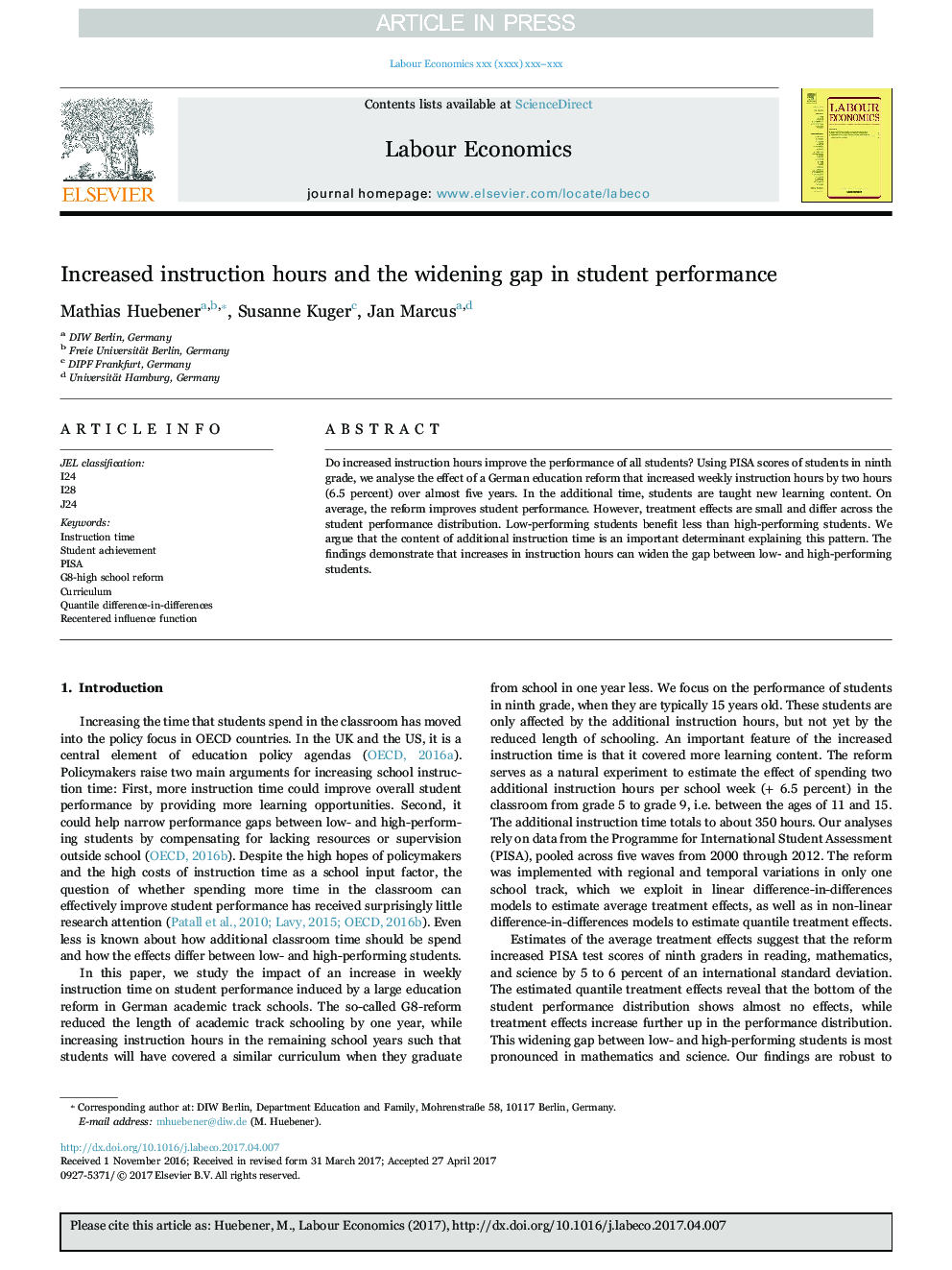| Article ID | Journal | Published Year | Pages | File Type |
|---|---|---|---|---|
| 5102004 | Labour Economics | 2017 | 20 Pages |
Abstract
Do increased instruction hours improve the performance of all students? Using PISA scores of students in ninth grade, we analyse the effect of a German education reform that increased weekly instruction hours by two hours (6.5 percent) over almost five years. In the additional time, students are taught new learning content. On average, the reform improves student performance. However, treatment effects are small and differ across the student performance distribution. Low-performing students benefit less than high-performing students. We argue that the content of additional instruction time is an important determinant explaining this pattern. The findings demonstrate that increases in instruction hours can widen the gap between low- and high-performing students.
Related Topics
Social Sciences and Humanities
Economics, Econometrics and Finance
Economics and Econometrics
Authors
Mathias Huebener, Susanne Kuger, Jan Marcus,
